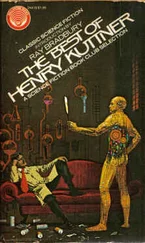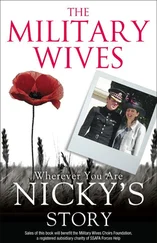A shout came from above. “Ahoy! There she is!”
The passengers stampeded toward the bow. Henry and the children fell in, joining the stream. Margaret stood rigid, the blood quickening in her veins. The Lady Ophelia was enormous, majestic. She came with sails as well as steam. Four towering masts swayed against a pewter sky, as if unstable.
Henry called to Margaret. She scanned the throng, spotting them ahead, larky children shrieking, Henry waving her forward. She gripped the burnished rail and began to inch her way toward them, the deck seesawing beneath her feet, her insides turning. “Like walking about in your own best room,” the prevaricating uncle had said.
THEY’D NOT BEEN on board the Lady Ophelia five minutes when John stumbled over a coil of rope and fell, scraping his knee. A uniformed officer was on him immediately, setting him to. The deck was positively littered with ropes, with winches and chains, drums and casks, all manner of object designed to draw a curious boy close to the rail. She’d need to watch the children every second of the day.
“There’s some confusion in the ladies’ section, sir,” the officer said to Henry. “You’re wanted straightaway.”
The ship’s doctor came up, offering Margaret and the children a tour in Henry’s absence.
Henry cheerfully accepted on Margaret’s behalf, before she could decide or get the first word out. They were led down a narrow corridor and shown the maple-paneled library, and then a card room, and yet another social room with a piano, an Oriental rug, and plush velvet drapery.
“It’s all quite impressive,” said Margaret, calmer now. It helped to be inside, away from the rail. By the time they reached the hectic dining hall she was feeling rather human again. The roast lamb smelled delicious. How novel to sit down to a meal she hadn’t so much as pared a potato for.
Dr. Pritchard escorted them to their cabin afterward, passing the animal pen along the way, where chickens mingled with pigs, and sheep stood with sad-looking dewlappy cows.
“We’ve the best of butchers aboard,” said the doctor.
“Nice piggy,” said Josephine, squatting, putting herself face-to-snout with a homely sow having her brown supper.
The grizzled old sailor inside the pen approached her. “You mustn’t ever utter the word pig on board a ship, lassie. ‘Twill bring the worst of luck. You’re to say swiney instead.”
“Come away, Pheeny,” said Margaret, giving the frightening man a stern eye.
At the opposite rail two young African sailors struggled to unlatch a wooden lifeboat. “They’re required to practice,” said the doctor, “before each sailing.”
The inept lads looked no older than twelve or thirteen. She would have to study the latching apparatus and teach herself how to unlock and release a boat. God help them should they need to rely on tots.
The women’s section was located just behind the animal pen. Male passengers, the doctor said, were strictly forbidden here. Margaret looked for Henry, but saw only women coming and going, old and young and in between, all laden with sacks and baskets. Off to the side, four women stood in a close huddle, Mrs. Randolph obviously presiding, one hand holding her fancy cape closed, the other gesturing wildly.
“Your husband will have earned his stipend,” said the doctor, reading Margaret’s mind.
She asked, “Do you have any idea when we might expect him?”
“I don’t. Sorry.” He brought them as far as their cabin door and left, saying that he was overdue.
She entered thinking, Henry, Henry, wait until you see. They’d both imagined a fairly spacious cabin, anticipated a small sitting area at least. In fact, the room offered only three places to sit: upon one of the two lower berths or upon the stool beneath the writing shelf. Lamps and washstand were bolted to the wall, virtually promising heavy seas. A shout came from outside, along with a grating rattle of chain. The ship shuddered and began to move. John begged to go to the bow, but Margaret said no, Father wouldn’t find them in the crowd. They waited for Henry inside, the dim little cabin rocking like an elephant’s cradle. When he didn’t come, she prepared the children for bed. “It’s been a long day, hasn’t it?” She changed into her nightdress and climbed the six-rung ladder to her berth, crouching at the top, proceeding on her hands and knees. There was no other way. The Queen herself would access the bed with her bottom in the air. Below, John kept up a steady stream of chatter.
“We’re bound to see whales tomorrow,” he said. “And sea pigs too.”
“The wobbly man told us not to say pig,” said Josephine. “You’re to say sea swiney instead.”
“Porpoise then,” said John. “That’s their other name.” Margaret fell asleep to their voices, dreaming that Henry had snuck off the ship and gone home on his own.
He showed up just after ten, whispering apologies. The captain had detained him, along with the other constables, treating them all to brandy and cigars. “The skipper’s a dyed-in-the-wool bachelor,” he said, “with no appreciation of a lovely girl waiting.” He attempted to squeeze his large self in beside Margaret, but even with her backside flush against the wall, the berth would not hold them both. He climbed down and then up again, settling in the opposite upper with a loud sigh. They were to sleep like celibates for the duration then, something they’d never done. A lonely, hemmed-in feeling came over her. In the dark, she touched the ceiling, calculating the distance—eight inches, ten at the most. A near-term woman wouldn’t fit. “’Night, Henry.”
“It’ll be all right, Meg,” he said.
She closed her eyes. “It will.”
HENRY WAS CALLED away to duty the next afternoon, missing the last spit of England. Margaret bundled the children and took them up top. A few dozen others stood somberly at the rail, a westerly whipping their clothes, blowing hats from heads. Cornwall’s jagged cliffs rose somewhere off the stern, no longer visible without a glass. Ahead lay nothing, absolutely nothing but an alarming expanse of churning sea and dull winter sky. A man began to play the anthem on his flute, slow and mournful. Some of the passengers locked arms and sang. The women sounded especially sad, their voices cracking. Margaret wasn’t the only one, then. There were others whose bones wouldn’t warm, others thinking: What in God’s name have we done?
THEY ENTERED the Bay of Biscay that evening and came along the edge of a storm. An hour into the weather, Henry complained of dizziness and blurred vision. Margaret went to fetch Dr. Pritchard, finding his tight quarters filled with patients. He gave her an orange and instructions to have Henry go up on deck. “I think you should come have a look,” she said. The doctor promised he would first chance. But he didn’t, and Henry was left to rally on his own.
On the sixth morning, in sight of the African coast, the seas placid, Margaret awoke feeling queer herself, quaky and nauseous. The doctor gave her an exasperated look when she came in, one that said: You, again. He asked straight off, “Are you in a family way?” Margaret said yes, and he shrugged, as if to say the symptoms were to be expected. He advised her to keep a full stomach.
“Much easier said than done,” she said.
The doctor laughed, showing another side of himself. “You’re a droll one. I like that.”
Mrs. Randolph was passing the infirmary just as Margaret came out. “Mrs. Oades! You’re well, I hope?”
“I am.” The lady’s eyes were glassy, fevered-looking. She was younger than Margaret first thought, probably Margaret’s own age, give or take a year. “And you, madam?”
Читать дальше












